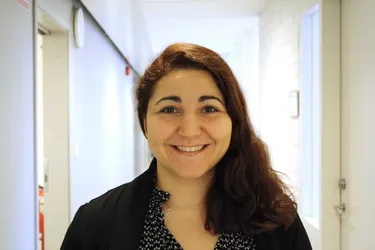1st International Workshop on "Data Driven Intelligent Vehicle Applications"
DDIVA 2019
Sunday, June 9th, 2019
A workshop in conjunction with IV 2019 in Paris, France
Home
Recent advancements in the processing units have improved our ability to construct a variety of architectures for understanding the surroundings of vehicles. Deep learning methods developed for geometric and semantic understanding of environments in driving scenarios aim to increase the success of full-autonomy with the cost of large amount of data.
Recently proposed methods challenge this dependency by pre-processing the data, enhancing, collecting and labeling it intelligently. In addition, the dependency on data can be relieved by generating synthetic data, which alleviates this need with the cost-free annotations, as well as using test drive data from the sensors and hardware mounted on a vehicle. Nevertheless, deep learning architectures can benefit from sensors and hardware which have originally been integrated for other functionalities.
Therefore, systematic approaches and methods can be used to discover the built-in hardware to improve the performance of autonomous driving. The aim of this workshop is to form a platform for exchanging ideas and linking the scientific community active in intelligent vehicles domain.
This workshop will provide an opportunity to discuss applications and their data-dependent demands for understanding the environment of a vehicle while addressing how the data can be exploited to improve results instead of changing proposed architectures.
Important Dates
Workshop paper submission: February 7th, 2019
Notification of workshop paper acceptance: March 29th, 2019
Final Workshop paper submission: April 22th, 2019
DDIVA Workshop on: June 9th, 2019
Workshop Venue
Mines ParisTech – PSL Research University
60 Boulevard Saint-Michel,
75006 Paris, France
RER B – Luxembourg Metro Line 4 – Odéon / Line 10 – Cluny La Sorbonne
Workshop Program
| Start | End | |
|---|---|---|
| 9:00 | 9:10 | Introduction & Welcome |
| 9:10 | 9:50 | Keynote by Pınar Boyraz Baykas |
| 9:50 | 10:05 | Submitted Paper 1 |
| 10:05 | 10:20 | Submitted Paper 2 |
| 10:20 | 10:40 | Coffee Break |
| 10:40 | 11:20 | Keynote by Dirk Torfs |
| 11:20 | 11:35 | Submitted Paper 3 |
| 11:35 | 12:15 | Keynote by Nazım Kemal Üre |
| 12:15 | 12:50 | Panel Discussion |
| 12:50 | 13:00 | Closing |
Keynote Speakers
| Keynote speaker | Title of the talk |
|---|---|
| Pınar Boyraz Baykas | Data-driven and Stochastic Models for Driver Behavior for Intelligent Vehicles |
| Dirk Torfs | Validating autonomous systems: from simulations over HIL testing to experiments in the field |
| Nazım Kemal Üre | Combining Large Scale Vision, Trajectory and Simulation Data for High Performance Autonomous Driving |
Call For Papers
The ambition of this full-day DDIVA workshop is to form a platform for exchanging ideas and linking the scientific community active in intelligent vehicles domain. This workshop will provide an opportunity to discuss applications and their data-dependent demands for understanding the environment of a vehicle while addressing how the data can be exploited to improve results instead of changing proposed architectures.
To this end we welcome contributions with a strong focus on (but not limited to) the following topics within Data Driven Intelligent Vehicle Applications:
Data Perspective:
- Synthetic Data Generation
- Sensor Data Synchronization
- Sequential Data Processing
- Data Labeling
- Data Visualization
- Data Discovery
Application Perspective:
- Visual Scene Understanding
- Large Scale Scene Reconstruction
- Semantic Segmentation
- Object Detection
Contact workshop organizers: emec.ercelik( at )tum.de / christoph.segler( at )bmwgroup.com
Submission
Authors are encouraged to submit high-quality, original (i.e. not been previously published or accepted for publication in substantially similar form in any peer-reviewed venue including journal, conference or workshop) research. Authors of accepted workshop papers will have their paper published in the conference proceeding. For publication, at least one author needs to be registered for the workshop and the conference and present their work.
While preparing your manuscript, please follow the formatting guidelines of IEEE available here and listed below. Papers submitted to this workshop as well as IV2019 must be original, not previously published or accepted for publication elsewhere, and they must not be submitted to any other event or publication during the entire review process.
Manuscript Guidelines:
- Language: English
- Paper size: US Letter
- Paper format: Two-column format in the IEEE style
- Paper limit: For the initial submission, a manuscript can be 6-8 pages. For the final submission, a manuscript should be 6 pages, with 2 additional pages allowed, but at an extra charge ($100 per page)
- Abstract limit: 300 words
- File format: A single PDF file, please limit the size of PDF to be 10 MB
- Compliance: check here for more info
The paper template is also identical to the main IV2019 symposium:
To go paper submission site, please click here.
Workshop Organizers
Acknowledgement
This workshop is supported by the European H2020 projects TETRAMAX and TERRINet under grant agreement IDs 761349 and 730994, respectively.









